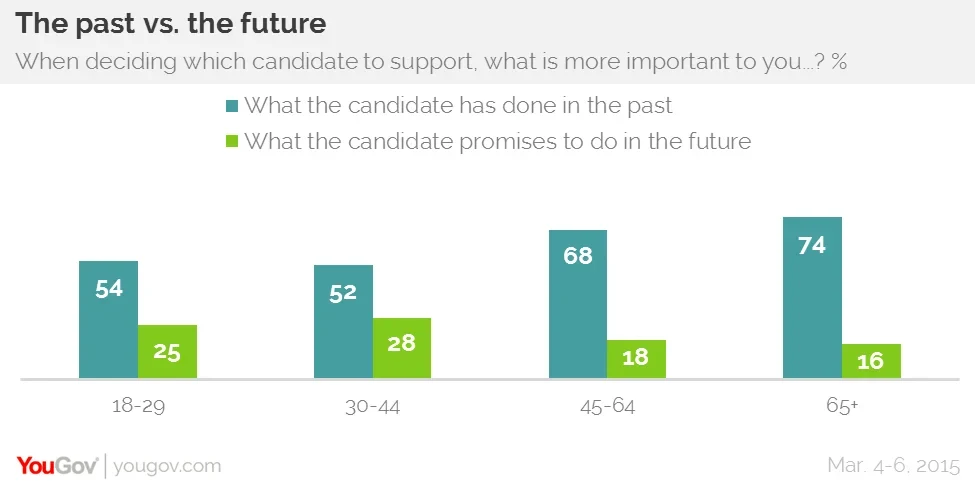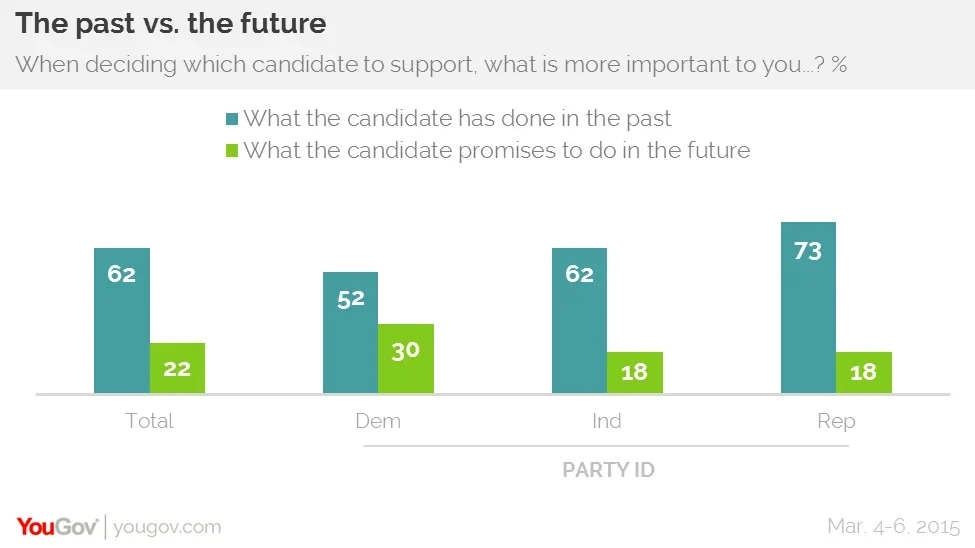Americans say they are more likely to judge a candidate on what they have done in the past than what they promise to do in the future
During election campaigns candidates are forced to walk a fine line, emphasizing their past accomplishments while showing that they still have good work left to do. Candidates with impressive records may need to prove they aren't stuck in the past, and candidates who make popular promises may win little support on Election Day if they can't point to an existing track record of success.
Research from YouGov shows that when Americans are deciding who they will support in an election, it's more important for them to look at what a candidate has done in the past (62%) rather that to examine what they promise to do in the future (22%).
There is significant difference is between younger and older Americans, with younger adults more likely to say that promises for the future counts for more than a candidate's past record when it comes to deciding who to support. Among over-65s 74% say that a candidate's past actions are more important than their promises, something that only 54% of under-30s and 52% of people aged 30 to 44 agree with.

White Americans (67%) are also much more likely than black Americans (42%) and Hispanic Americans (47%) to say that a candidate's past actions come first. Over one-third of Hispanic Americans (36%) think that a candidate's promises are more important, versus only 18% of white Americans.
Given the age and racial differences on this question, it is less surprising that there is also a partisan division. Republicans and independents (18% each) are less likely to think that promises come first than Democrats (30%), a more racially diverse and younger group.










